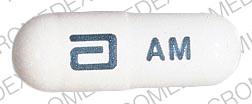Tridione Interactions
There are 245 drugs known to interact with Tridione (trimethadione), along with 8 disease interactions, and 1 alcohol/food interaction. Of the total drug interactions, 13 are major, 231 are moderate, and 1 is minor.
- View all 245 medications that may interact with Tridione
- View Tridione alcohol/food interactions (1)
- View Tridione disease interactions (8)
Most frequently checked interactions
View interaction reports for Tridione (trimethadione) and the medicines listed below.
- Actimmune (interferon gamma-1b)
- Adakveo (crizanlizumab)
- Adcetris (brentuximab)
- Adcirca (tadalafil)
- Adriamycin (doxorubicin)
- Afinitor Disperz (everolimus)
- Agrylin (anagrelide)
- Albutein (albumin human)
- Alphanate (antihemophilic factor/von willebrand factor)
- aminophylline / ephedrine / guaifenesin / phenobarbital
- amiodarone
- amlodipine
- amoxicillin / clarithromycin / omeprazole
- ampicillin / sulbactam
- anagrelide
- Dilantin (phenytoin)
- enalapril
- Evrysdi (risdiplam)
- Imbruvica (ibrutinib)
- Luvox (fluvoxamine)
- Mayzent (siponimod)
- Mebaral (mephobarbital)
- Mesantoin (mephenytoin)
- Ocrevus (ocrelizumab)
- Paradione (paramethadione)
- Phenurone (phenacemide)
- Valium (diazepam)
- Venclexta (venetoclax)
- Zarontin (ethosuximide)
- Zyloprim (allopurinol)
Tridione alcohol/food interactions
There is 1 alcohol/food interaction with Tridione (trimethadione).
Tridione disease interactions
There are 8 disease interactions with Tridione (trimethadione) which include:
- blood dyscrasias
- hemeralopia
- liver disease
- rash
- renal dysfunction
- suicidal tendency
- myasthenia gravis
- SLE
More about Tridione (trimethadione)
- Compare alternatives
- Drug images
- Side effects
- Dosage information
- During pregnancy
- Drug class: oxazolidinedione anticonvulsants
Related treatment guides
Drug Interaction Classification
| Highly clinically significant. Avoid combinations; the risk of the interaction outweighs the benefit. | |
| Moderately clinically significant. Usually avoid combinations; use it only under special circumstances. | |
| Minimally clinically significant. Minimize risk; assess risk and consider an alternative drug, take steps to circumvent the interaction risk and/or institute a monitoring plan. | |
| No interaction information available. |
See also:
Further information
Always consult your healthcare provider to ensure the information displayed on this page applies to your personal circumstances.


